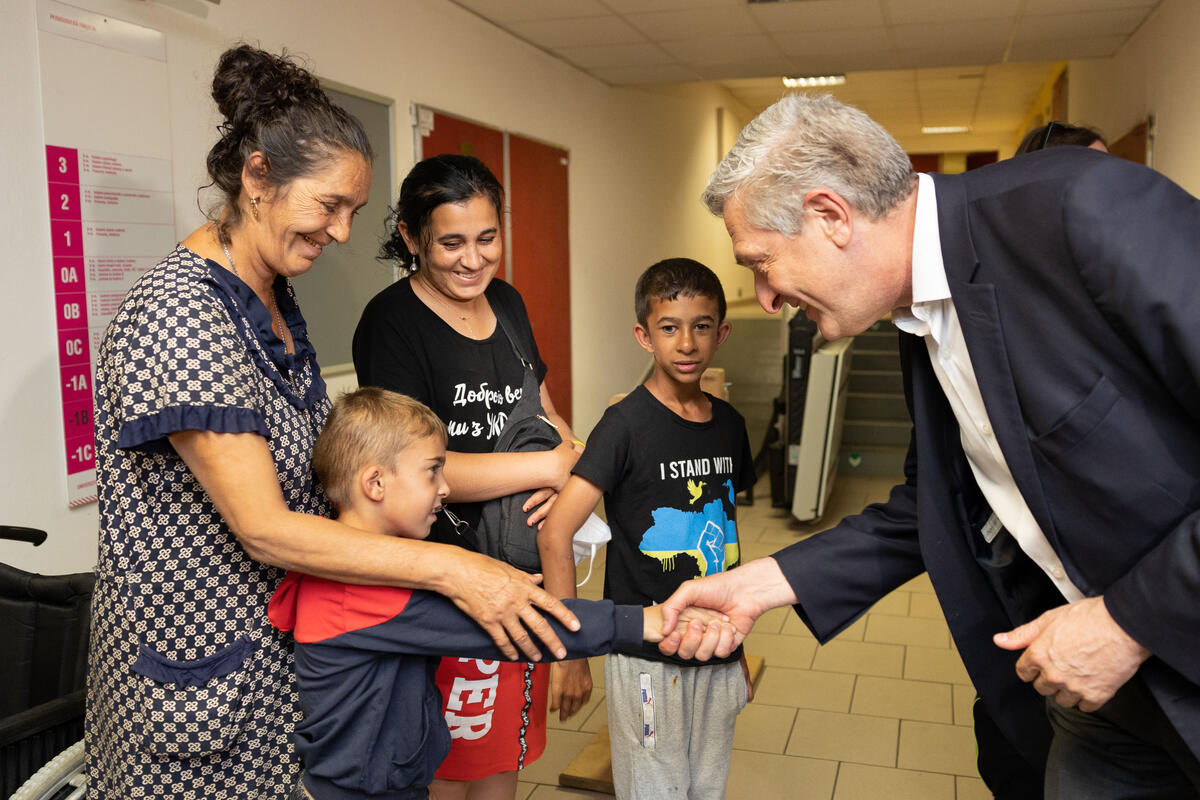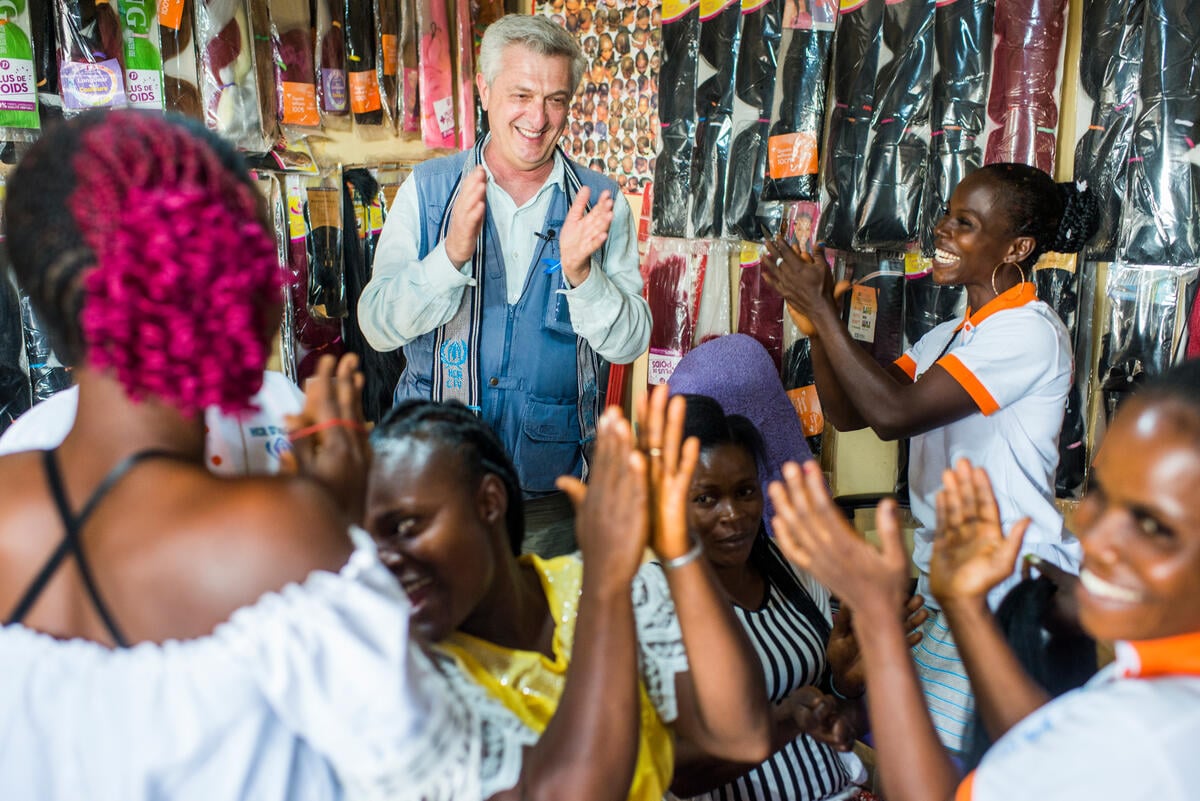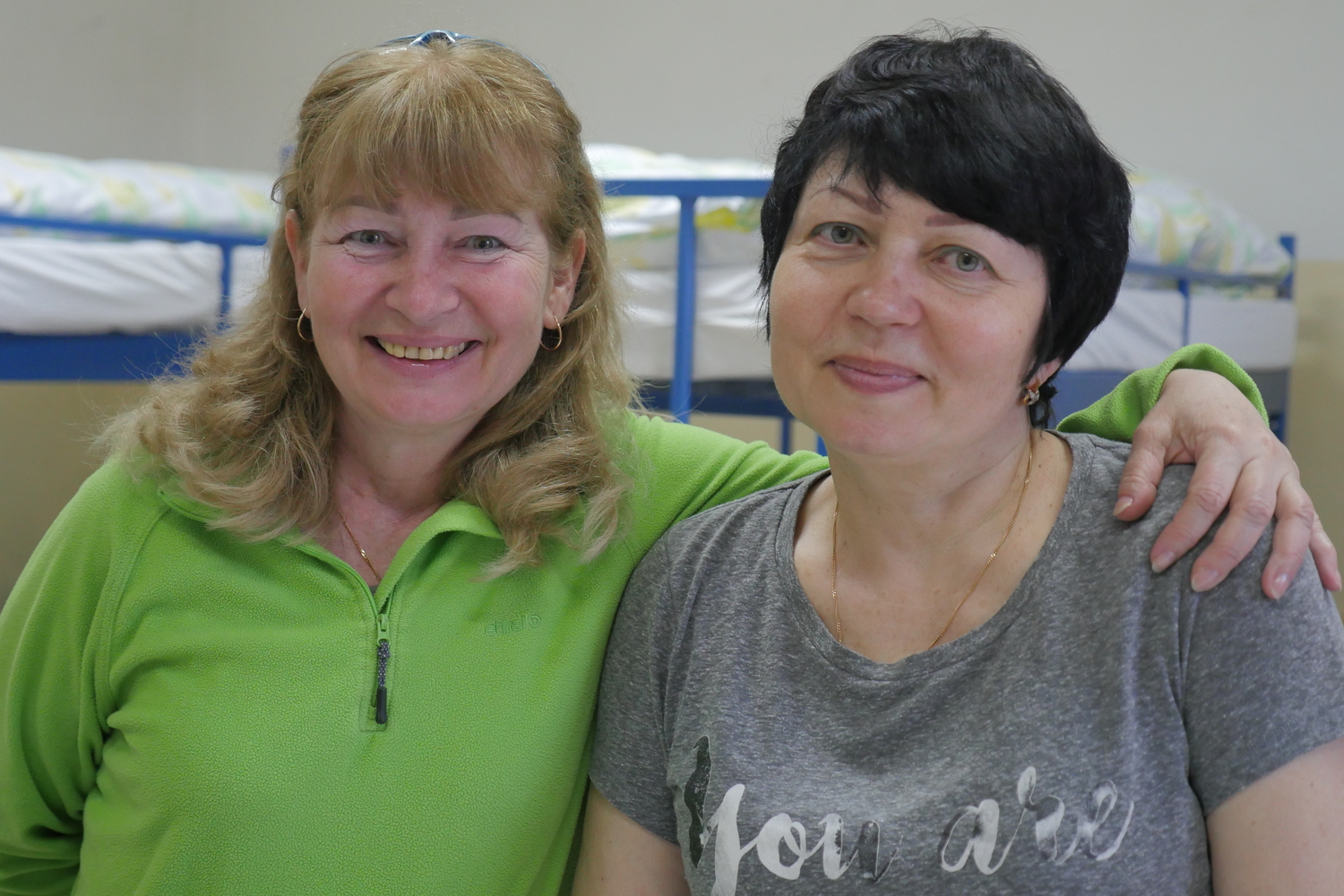UN's core values guide Volker Türk's career at UNHCR

UN's core values guide Volker Türk's career at UNHCR
On April 13th, 1989, a 24-year-old law student walked up to UN headquarters in Vienna for the first day of a short term contract. Few would have paid much attention to Volker Türk that morning.
“I remember being extremely nervous … I took the underground. I went there in a suit. I just remember going to the security guards at the entrance and entering the UN … I had this sense of getting out of my own country and into the world,” he said in an interview.
Türk steps down this month as Assistant High Commissioner for Protection for UNHCR, the UN Refugee Agency, after a career of leadership at the cutting edge of the organization’s most pressing concerns. As a legal authority, he has been a tireless defender of the framework for refugees, the internally displaced and stateless people in a changing world. As an administrator, he has helped shape the organization.
Above all, his values, professionalism, expertise and personal style have come to embody what UNHCR stands for.
Hundreds, including many from outside the organisation, attended a farewell in Geneva this month before he moves to a new position as Assistant Secretary-General for Strategic Coordination in the Executive Office of the UN Secretary-General. Geneva’s loss is New York’s gain.
It is a testament to the affection colleagues feel towards him that he is widely known by a single name: Volker.
“Integrity … knowledge … passion.”
“I was striving to find the right words to describe Volker's service to UNHCR,” said High Commissioner Filippo Grandi at the farewell. “I use the word 'integrity'. I use the word 'coherence'. I use the words 'knowledge', 'creativity' and 'passion.’”
Türk was Director of the Division of International Protection for nearly six years until 2015 and Grandi said he came to “symbolize refugee protection.”
Türk’s humanitarian values run deep.
He grew up in Vienna and near the city of Linz at a time when many Austrians were questioning how their country had fallen under the sway of the Nazis decades earlier. As a teenager he learned languages and read philosophy, literature and theology. At one stage a career in anthropology beckoned as a way of putting into practice his passion for social justice. Eventually, he settled on law, completing in 1992 a doctorate at the University of Vienna on UNHCR and its mandate – a prescient subject, as things turned out.
During his teens, two personal experiences shaped his values.
One day, his class was given an article about how children in many parts of the world struggle to get an education. Then the class was given a copy of the Universal Declaration of Human Rights, which talks about the right to education. The lesson struck a chord.
“I still have that copy. I carried it around wherever I went,” he said. These days, the copy is battered from overuse.
He also attended the opening of the UN headquarters in Vienna: “I just fell in love with the UN. It has this vision of a world that embraces diversity, is rich in culture, in people, in everything.”
Guiding Türk’s career is a commitment to seeing the international community support refugees and stateless people and also to support the communities who host them.
“What we do has its worth.”
He served around the world in a succession of senior roles too numerous to mention. They included Representative in Malaysia; Assistant Chief of Mission in Kosovo as well as Regional Protection Coordinator in the Democratic Republic of the Congo.
More recently, he served as Director for Organization and Management, leading UNHCR’s structural and management change process. He played a central role in developing UNHCR’s Global Strategic Priorities as well as its Global Management Accountability Framework and its Global Needs Assessment Methodology. Both of these were firsts for the organization.
He also led the development of the Global Compact on Refugees and acted as spearhead for the #IBelong Campaign to end statelessness.
But to name those roles in isolation is to miss a crucial aspect of Türk’s philosophy. He views UNHCR as fundamentally a people-centric organization.
“What we do has its worth … (because) it actually touches the lives of people …. It gives them the options and the freedoms and the rights that they need,” he said in a farewell speech he had described as the most difficult he had given because of the emotion of the occasion.
“People at the centre.”
In every role, Türk said he made time to hear the stories of people he worked amongst. Sometimes that even meant dodging protocol and going incognito. The aim was never to have adventures, or even primarily to gain on-the-ground information. Rather, he said, it was to refresh the well spring of empathy from which all the work should flow.
“We need to continue placing people at the centre of what we do so that we can remain as effective as possible in meeting our mandate responsibilities,” he said in a farewell message.
Asked to name a powerful experience among refugees, he pointed to an incident early in his career when he officer in charge in Kuwait in the aftermath of the first Gulf War.
People’s lives had been upended. Many were in detention. Others were rendered stateless by the conflict.
“You listen … and it gets you emotionally and I had to learn to deal with that,” he said. But empathy turned into action.
He was able to get some people out of detention and others resettled to a third country. He also negotiated so that stateless people were granted access to education.
The episode showed Türk that UNHCR’s mandate, which is rooted in the values of the UN, enables people to do extraordinary things.
At a time when solidarity with refugees is under threat, that mandate and those values have never been so important.














